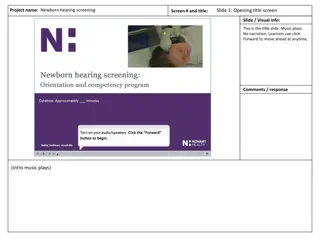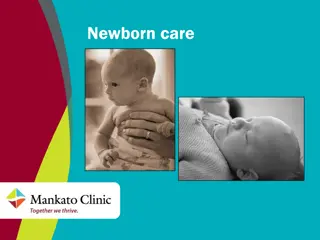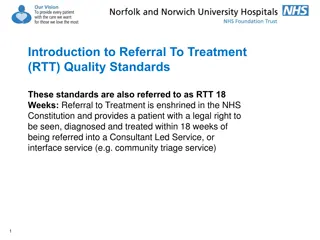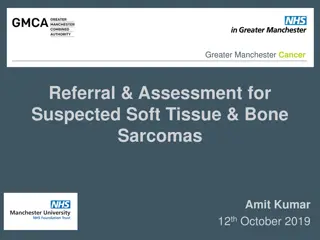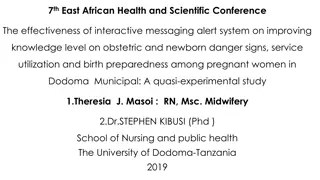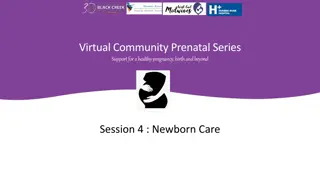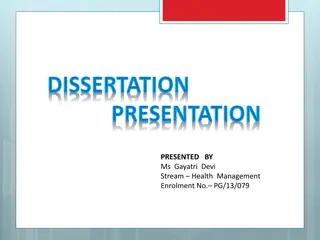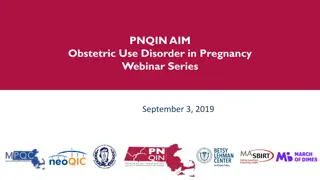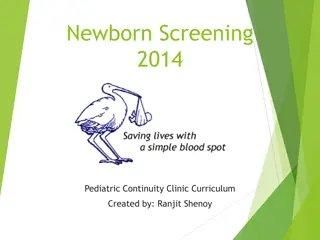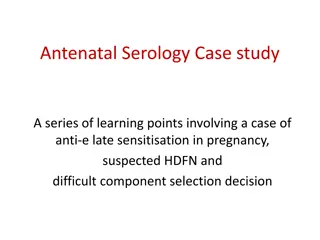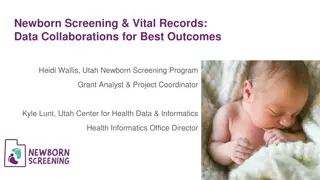Enhancing Emergency Obstetric and Newborn Care through First Referral Units
Historical background and strategic approach to improve emergency obstetric and newborn care through the establishment of fully functional First Referral Units (FRUs) in districts, focusing on critical services, infrastructure needs, and essential facilities. The initiative aims to provide 24-hour delivery services, emergency obstetric care, newborn care, family planning services, and other essential medical interventions. It also emphasizes the importance of safe abortion services, STI/RTI treatment, blood storage, referral services, and infrastructure requirements for FRUs.
Download Presentation

Please find below an Image/Link to download the presentation.
The content on the website is provided AS IS for your information and personal use only. It may not be sold, licensed, or shared on other websites without obtaining consent from the author. Download presentation by click this link. If you encounter any issues during the download, it is possible that the publisher has removed the file from their server.
E N D
Presentation Transcript
Introduction Historical background CSSM Programme- setting up FRUs at the community health centers/sub-district level hospitals. RCH Programme -Supply of Emergency Obstetric Drug Kit -Provision for Private Anesthetic Services Drug and Cosmetics Rule
Tenth Plan: Recommended Approach Identified establishment of fully functional and operational FRUs as the priority area for the provision of Emergency Obstetric and New-born Care. By the end of the Tenth Five Year Plan, each district should have at least 3-4 fully functional facilities which are equipped to provide Emergency Care on a round-the- clock basis.
Cont.. Mapping the existing health facilities, available manpower and other resources for each district
Critical Determinants of a FRU s 24-hour delivery services including normal and assisted deliveries Emergency Obstetric Care including surgical interventions like Caesarean Sections and other medical interventions New-born Care Emergency Care of sick children Full range of family planning services including Laproscopic Services
Cont. Safe Abortion Services Treatment of STI / RTI Blood Storage Facility Essential Laboratory Services Referral (transport) Services
Points to be consider while selecting the facility Infrastructure needs A minimum bed strength of 20-30 and North- East and EAG States of 10-12 beds initially. A fully functional operation theatre equipped for undertaking anesthetic and emergency surgical procedures. A fully operational Labour Room.
Cont An area earmarked and equipped for New- born Care in the Labour Room and also in the ward. A functional laboratory with facilities for all essential investigations. Blood storage facility as per the guidelines issued by Govt. of India (GoI). 24-hour water supply. Arrangements for waste disposal.
Cont Regular electricity supply with back-up arrangements to ensure uninterrupted supply Telephone connection. Ambulance (owned or arranged through local hiring).
Cont. Selection of sites Under the RCH Programme funds were provided to CHCs and district hospitals.
Equipment Kits Supplied Under CSSM Programme
Human resources: Re-deployment and multi-skilling Policy options for human resource management Facilities to manage Obstetrical and medical emergencies. strength of 4 medical officers (surgeon, obstetrician, physician and pediatrician) was recommended. Adequate number of Medical Personnels including nursing staffs. In-patient wards.
Cont. Re-deployment & multi-skilling Strengthening of BPHCs and PHCs will be done in a need based manner. All the block PHCs shall have minimum 30 indoor beds with complete facilities for institutional delivery and usual indoor treatment care. Well-functioning PHCs running with indoor facilities will be identified and their infrastructure strengthened.
Cont. The existing manpower will be strengthened by withdrawing and posting of manpower from PHCs that are providing only OPD services. All the staff of PHCs, doing outdoor services shall be with drawn and re- deployed in BPHCs and PHCs running
Cont. Provision of support services like blood storage, Laboratory services, pharmacy services. Assessment of available manpower and other resources in FRUs. Training programme (FOGSI) Multi-skilling training of paramedical workers
Functional/financial autonomy Hire locally available specialists and/or paramedical workers from the private/ NGO sector in case of need Make local arrangements for referral transport Generate resources locally and Out-source non-clinical services.
Referral Transport (i) Appropriate referral transport from the periphery to the functioning First Referral Units providing emergency services and (ii) Also from FRUs to district/tertiary level institutions.
Current Information 1992-1997 - 105 FRUs in Tamil Nadu 2009 - 291 FRUs in Tamil Nadu
Evaluation 1. , ,$ .. are the clinical facilities should be needed in PHCs or CHCs to declare as a FRU. 2. Under CSSM Programme, number of kits were designed for surgical procedure. 3. Up to 2009, the total number of FRUs operationalised in Tamil Nadu is
Assignment Write an assignment on standing Write an assignment on standing orders followed in FRU in case of orders followed in FRU in case of obstetrical emergencies. obstetrical emergencies.





